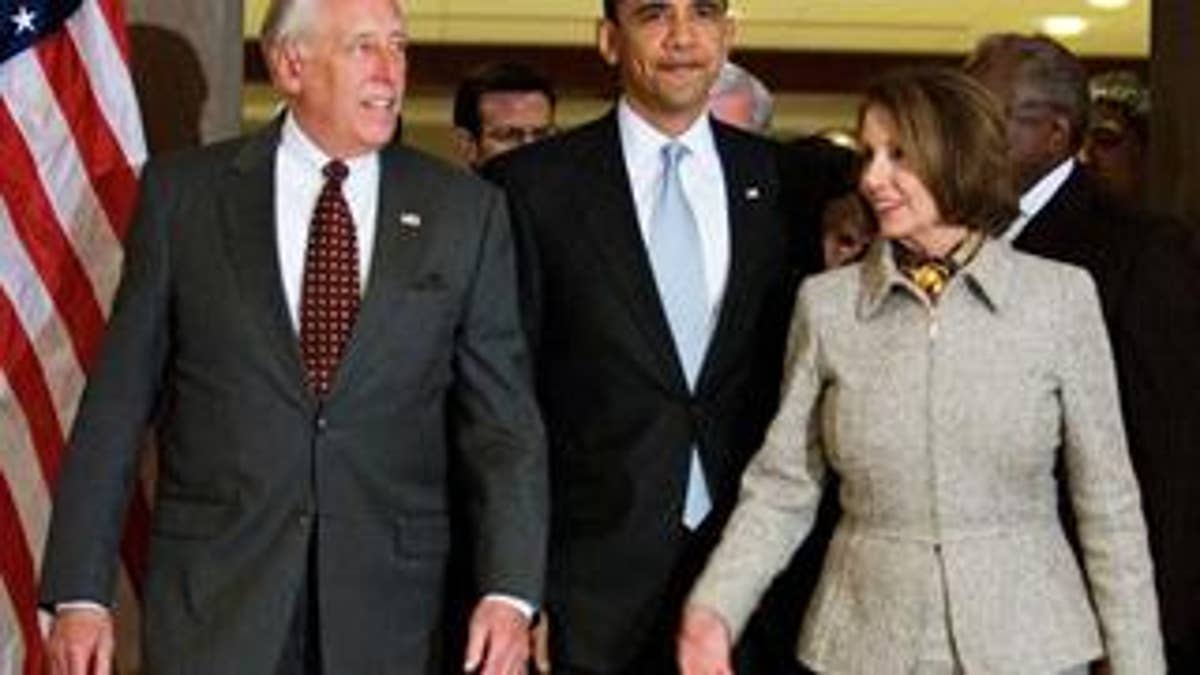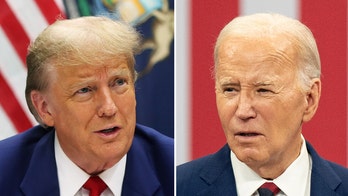
Mark your calendar: April 21, 2009. That's when the Era of Bipartisanship died.
That's what some Republicans suggested after President Obama opened the possibility of a congressional investigation and prosecution of Justice Department lawyers who authorized "enhanced" interrogation techniques on terror suspects during the Bush administration.
If the coffin needs a final nail, it will come if Democrats decide to fast-track Obama's legislative priorities through a budget maneuver known as "reconciliation."
Democrats in the House and Senate agreed Friday on a budget framework that would protect Obama's health care plan from a Republican filibuster using the tactic.
Republicans and some Democrats oppose reconciliation because it would prevent a long debate on what they consider complex issues.
Bipartisanship was already on life support after Republicans largely opposed the president's economic policies, and it took a turn for the worse on Tuesday when Obama said it would be up to his attorney general to determine whether "those who formulated those legal decisions" behind the interrogation methods should be prosecuted.
Those methods, described in Bush-era memos Obama released last week, included tactics such as slamming detainees against walls and subjecting them to a simulated drowning technique known as waterboarding.
Obama acknowledged the complexities involved with prosecuting Bush officials.
"As a general deal, I think that we should be looking forward and not backwards," he said. "I do worry about this getting so politicized that we cannot function effectively, and it hampers our ability to carry out national security operations."
He suggested that Congress might set up a bipartisan review, outside its typical hearings, if it wants a "further accounting" of what happened during the period when the interrogation methods were authorized. His press secretary later said the independent Sept. 11 Commission, which investigated and then reported on the terror attacks of 2001, might be a model.
But at a closed-door bipartisan meeting with congressional leaders Thursday, Obama reportedly resisted pressure from Democrats to probe Bush officials. House Speaker Nancy Pelosi, D-Calif., told Obama she wants a "Truth Commission" to investigate the interrogation policies -- an option that several congressional Democrats support.
But Obama and Senate Majority Leader Harry Reid, D-Nev., apparently didn't embrace the idea.
Obama also addressed the "reconciliation" procedure at the meeting, saying it may be used as "a last resort" on health care reform legislation.
Senate Minority Leader Mitch McConnell, R-Ky., warned the president that "reconciliation" would cause serious problems and hamper bipartisan cooperation, GOP aides told FOX News.
But some Republican leaders haven't given up on achieving bipartisanship.
House GOP leaders wrote Obama a letter dated April 22, detailing the policy proposals they wish to work with him on, including tax cuts for businesses and families and tax breaks for homeowners and potential homebuyers.
"We believe that if Washington can put aside petty politics and unite for the good of the American people, we can accomplish great things," the letter read. "Unfortunately, there has been a sad lack of bipartisanship. This lack of bipartisanship has been a major detriment to your stated desire to change the way that Washington works."
Republicans blamed Democrats for the lack of bipartisanship.
"Democratic leaders in Congress have so far ignored your call for a new era of bipartisanship in Washington," they wrote, claiming Democrats have not engaged in dialogue with them on legislation. "However the next 100 days can be different."
FOX News' Carl Cameron and Trish Turner and The Associated Press contributed to this report.




